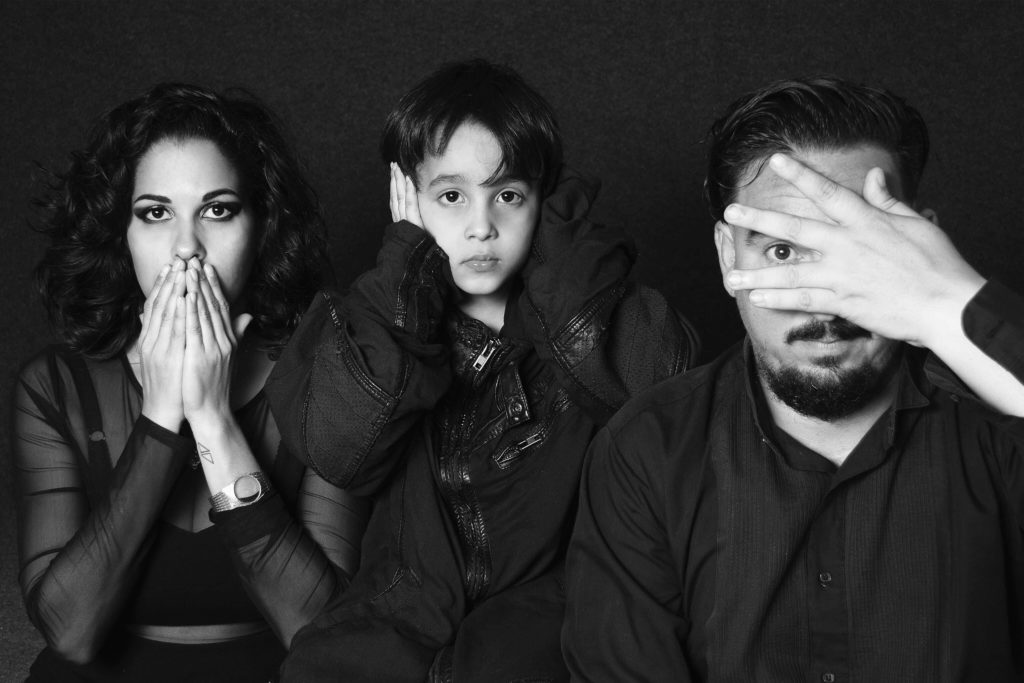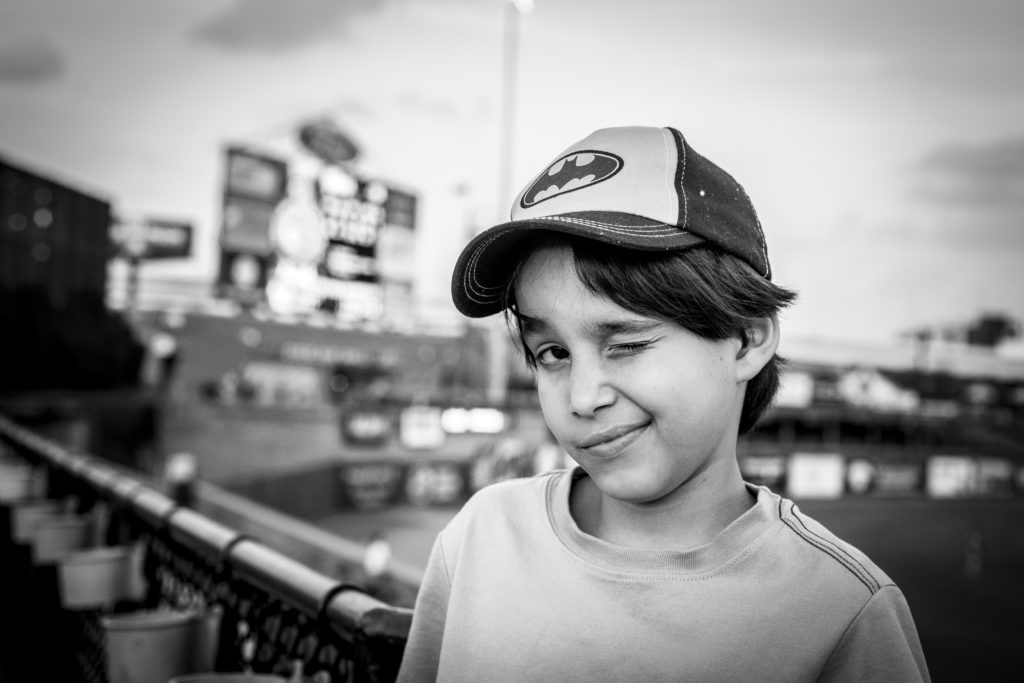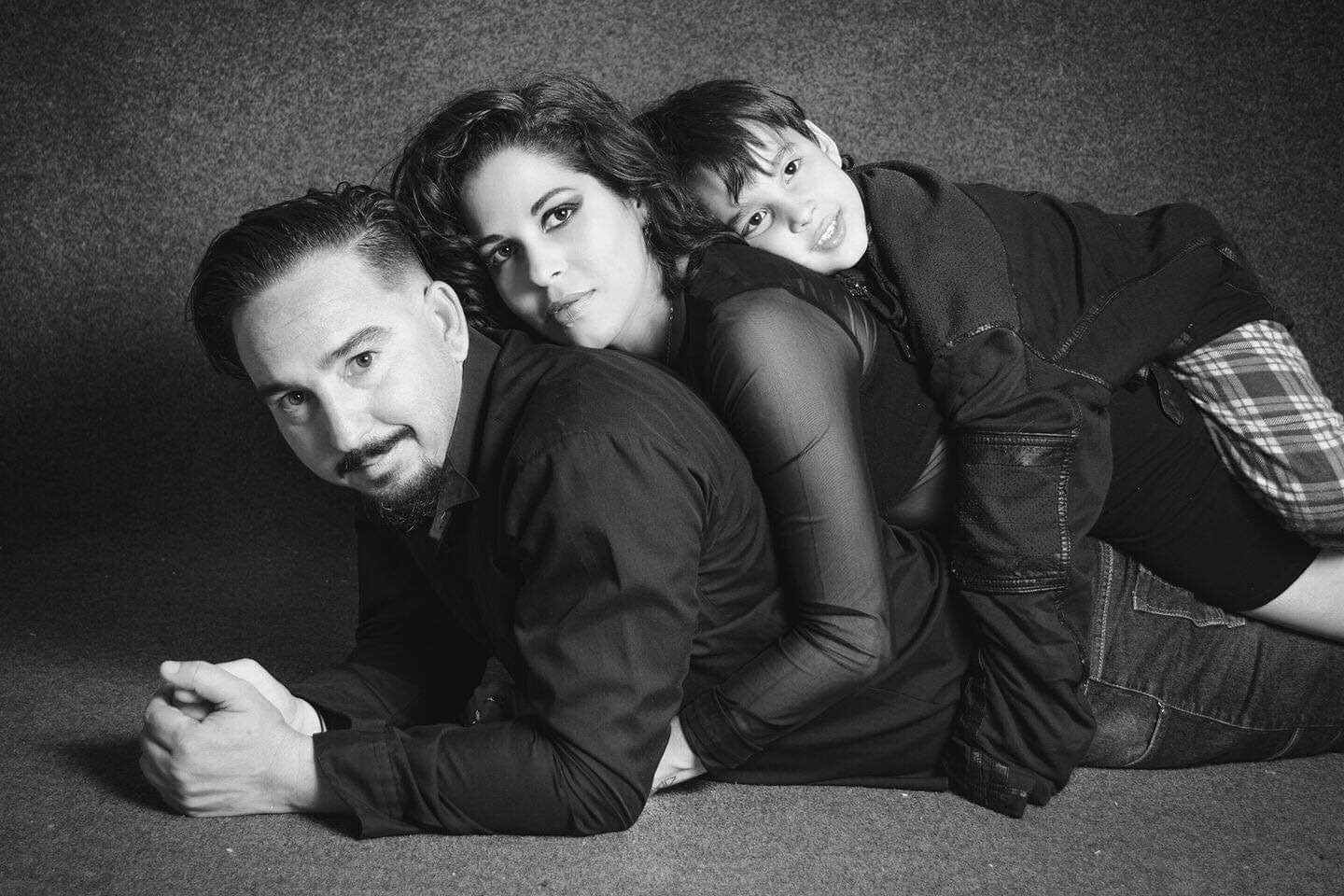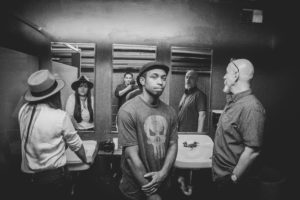Yunier Ramirez Cedeno and Ramona Leyva Cruz are expanding their artistic horizons in Louisville. The couple, ages 38 and 28, hopes to purchase their first home within the next year so they can open an in-house studio. Both are painters, photographers, and videographers.
“In Cuba, those kind of things are almost impossible,” Yunier says. He and Ramona were involved in painting and photography in Cuba, but they considered most of it to be commercial work for tourists. “We work, but just to get some money to live every day.”
For Cubans in the town of Holguin, Kentucky is a popular U.S. destination, Yunier explains. “We live in a small town,” he says. “There are a lot of people from my city who live here in Louisville, and everybody talks about that this is a good place to find a job, create a family.” People consider Kentucky a quiet home compared to the city bustle of other popular destinations like Tampa or Miami, Florida, he adds.
Ramona’s mother and other relatives already lived in the U.S. and assisted with their application. The couple waited seven years for their interview in the U.S. Embassy in Havana. They arrived with their son Carlos, now eight, in May 2017.
In their two years here, they have learned a lot about the U.S., from opening a bank account, building credit, to finding work. They have educated a lot of their friends about Cuba, too. “We think that everybody knows Cuba,” Yunier says. “And when you come here, nobody knows Cuba. Most people think, ‘So, Cuba’s Mexico?’” He is lighthearted about this, but he turns serious when he explains how Cuban culture places emphasis on friendship and loyalty. “If we are friends with somebody, you can count on me. It doesn’t matter if it’s the night or whatever, you just call me, and I will be over there for you.”
“Some of the time,” Ramona says, “people here think that when you come from different countries, you are different. We are not really different. We are the same.”
Yunier and Ramona have remained busy since arriving in Louisville. They participated in ESL classes at KRM and then sought work. Ramona secured a job at Hanna Anderson, a clothing production company. Yunier attended classes at Goodwill Power of Work, a resource he says helped him understand systems in the U.S., and later secured work at the printing company USA Image.
Their son Carlos began school at Kenwood Elementary. “He didn’t understand English,” Yunier says, which caused Carlos to struggle at first. They asked for guidance from KRM and the school, which made some changes to help Carlos get support. A volunteer tutor from KRM began visiting their home, and six months later, the family saw improvement. “Now, he’s pretty good. He’s one of the best in the class,” Yunier says. “We love that school. We love the people who work over there.”

At work, Yunier became close with his coworkers. “I love USA Image. People are like family,” he explains. Through his supervisor, Yunier learned about a man named Daniel from South Sudan who arrived in the U.S. as a young man; he arrived during the resettlement of who are often called the “Lost Boys” of Sudan. Daniel agreed to participate in a photography session with Yunier.
Through Daniel, Yunier learned more about the experiences of others who fled their homes. “I start to talk with Daniel about his story, about what you did as a kid, what happened, how was your trip, your travels. Almost 1,000 miles,” he explains. After the quick 20-minute session, Yunier offered to take some portraits of Daniel to send to his wife in Kenya.
Yunier showcased the resulting portraits in KRM’s We Create arts project in 2018. To make this work possible, Yunier and Ramona built a mobile studio with newly-acquired equipment— such as lights, photo and video cameras, and lenses — that they received through a Jewish Family and Career Services (JFCS) program. Ramona paints canvases for backdrops and also does hair and makeup.
Yunier applied for KRM’s new We Create project, where he met other local artists and was able to feature his photography of Daniel at the Muhammad Ali Center. He created lasting collaborations, too. After meeting artists Purion Parker and Gabriel Walker, they created a company, Glass Eye Ensemble. The company created videos of poet Ron Whitehead and his work, which exhibited at Tim Faulkner Gallery. Yunier has had exhibits at 1610 Flux Art + Activism and Iroquois Library, too.
Now equipped with tools and a growing network, Yunier and Ramona work on their art mostly on the weekends. Their full-time jobs are opposite shifts so that someone can be home with Carlos. “I try to get Carlos involved in creating, to make something with us,” says Yunier.
Moved by what he learned through Daniel and the positive community response to the photographs, Yunier says his art may become more educational. “African people have really bad stories,” he says, referring to Daniel’s experiences. “People run out of the country and live in a refugee camp for 12 years or something like that.” Many refugees from African countries have lost numerous family members, he adds. He explains how Daniel works two full-time jobs so he can send money to Kenya for his wife. “If I can do more like activism against racists, against all that, that’s something that I really, really need to do,” says Yunier. His next video project is in progress and will feature stories childhood and adulthood in three countries.

As they save for a house, Yunier and Ramona also hope to return to education. Ramona wants to attend Jefferson Community and Technical College for forensic psychology; her educational background is in commerce and gastronomic services. In Cuba, Yunier studied and worked in accounting and finance and then later studied and taught philosophy, culture, religion, and war history at the university level.
“If I can get a JCPS position sometime, that’s going to be my dream come true,” he says. The family hopes to also return to Cuba within the year to visit Yunier’s extended family, including his 101-year-old grandmother.
“The idea that people have in Cuba is that when you come here, you’re alone,” Yunier says. For Yunier and Ramona, they have built a community around them through their art. “When you find people who really want to take care of you and show you how this country works… that’s amazing.”
The We Create Arts Program
Growing from other arts endeavors at KRM, the 2017-2018 We Create project in Louisville brought together over 20 KRM and local artists in an exploration and community-wide celebration of refugee stories. Projects included solo endeavors and collaborations across various disciplines, such as musical performance, drama, dance, mixed media, photography, videography, visual art, sound design, found art, and more. Art was showcased at the first-ever We Create: World Refugee Week Festival in Louisville in June 2018. Pop-up events occurred at the Big Four Bridge, Muhammad Ali Center, Better Block Festival in the Woodlawn neighborhood, Louisville Visual Art (LVA), and Brown Theatre. The We Create program was made possible through funding support from Imagine Greater Louisville 2020 and Louisville Metro Government External Agency Fund.
ongoing arts programs & artsmatch
Each quarter, KRM Louisville holds KRM Live showcases and Master Class Workshops. In June, the first-ever KRM Global Style Week will be a series of arts, culture, and education programming and events intending to celebrate, focus on, and highlight the innovative, diverse, and rich global style, fashion and art in our community. Events will be held on the KRM Louisville campus as well as partner venues and will include documentary screenings, panel discussions and community conversations, youth fashion design and production workshops, community photo shoots and more. Stay tuned for more information.
You can make an impact on local and international artists like Yunier and Ramona through a unique matching gift opportunity through Fund for the Arts. Learn more and donate to KRM’s ArtsMatch project today.




You must be logged in to post a comment.